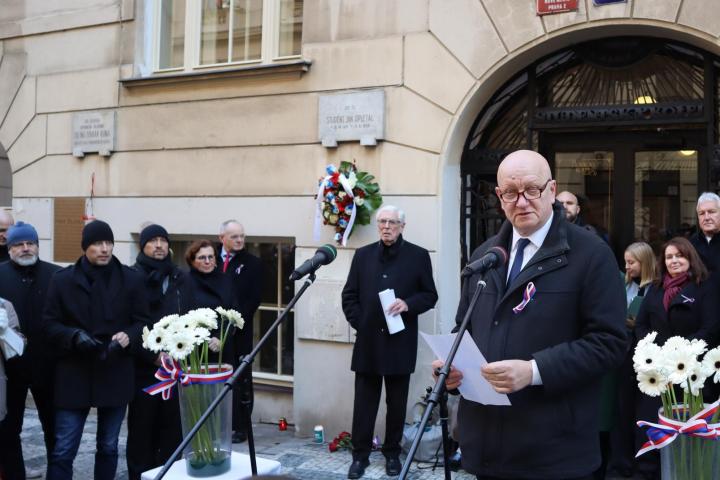
The memorial event and activities began as usual outside Hlávka dormitory, which belongs to CTU in Prague. The speakers and participants included major politicians and representatives from the academic sphere. There was a moving address by Zdeňka Valouchová, daughter of a Czechoslovak officer murdered by the nazis. A special guest for this year’s event outside Hlávka dormitory and later in Albertov was Irene Tracey, vice-rector of the University of Oxford. Visibly moved, she pointed out that Oxford University provided education during the second world war for many Czech students (on the basis of a specific request by Jan Masaryk), and she recalled the background to their help. In Albertov, she spoke about the Václav Havel bench on Oxford university premises, and expressed her happiness about the closeness between our countries in the past and still at the present time.
CTU rector Vojtěch Petráček then spoke about some of the "difficult moments of our country, Europe and the whole world". It is up to all of us to find a way back to balance, he said, but he believes in the energy of the young , because remediation calls for courage - "which is something that present-day students and young people have!" (Rector Petráček’s speech is given in full below.)
Michal Farník, president of the student chamber of the Council of Universities and a student of CTU in Prague, also delivered speeches outside Hlávka dormitory and in Albertov.
Rektor Vojtěch Petráček, together with Jakub Sláma, student vice-president of the academic senate of CTU, laid a wreath outside the dormitory. Together with vice-rector Radek Holý, he placed flowers in Albertov, and he placed a bunch of flowers beside the memorial plaque to Jan Opletal and Václav Sedláček at no. 24 Žitná Street unaccompanied.
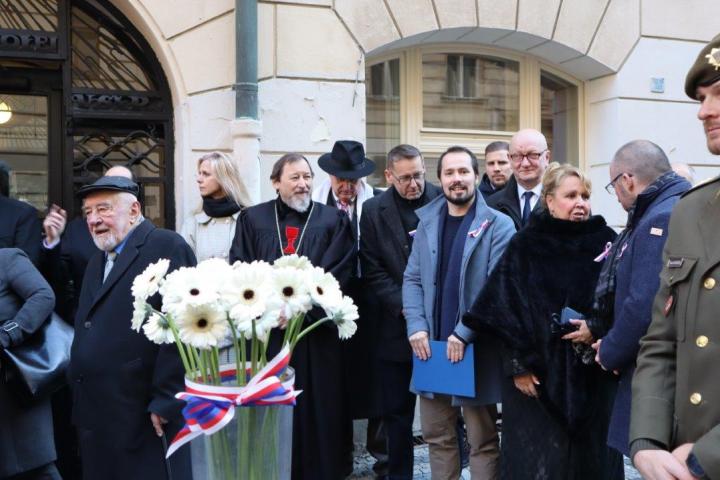
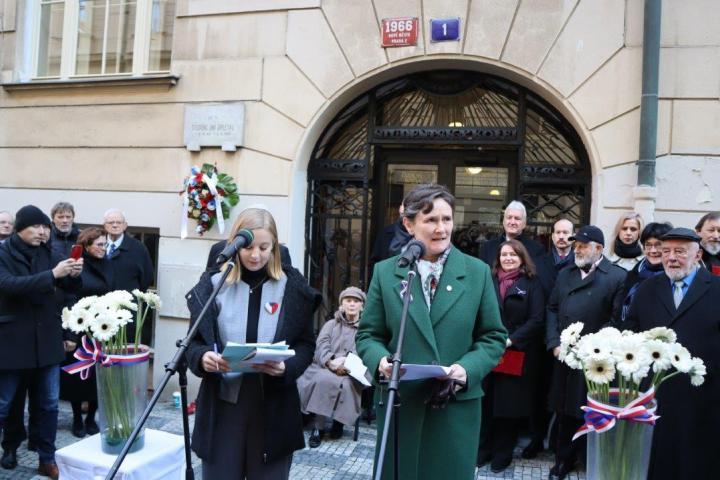
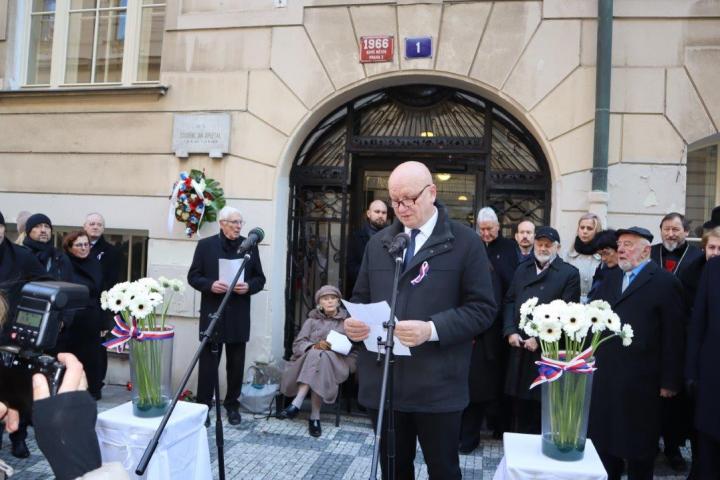
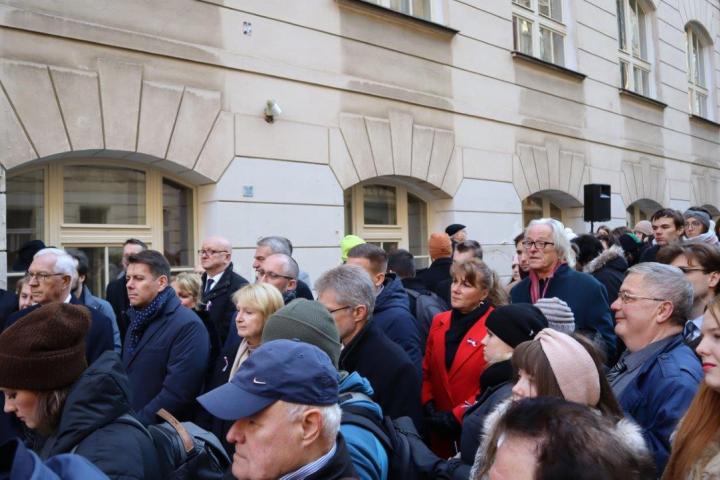
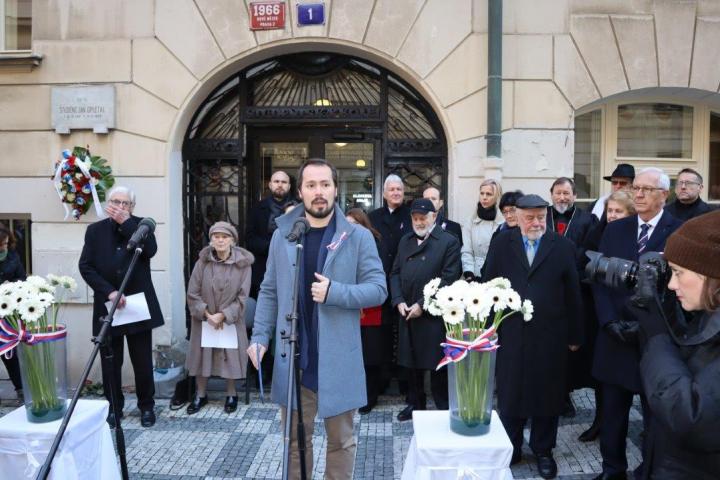
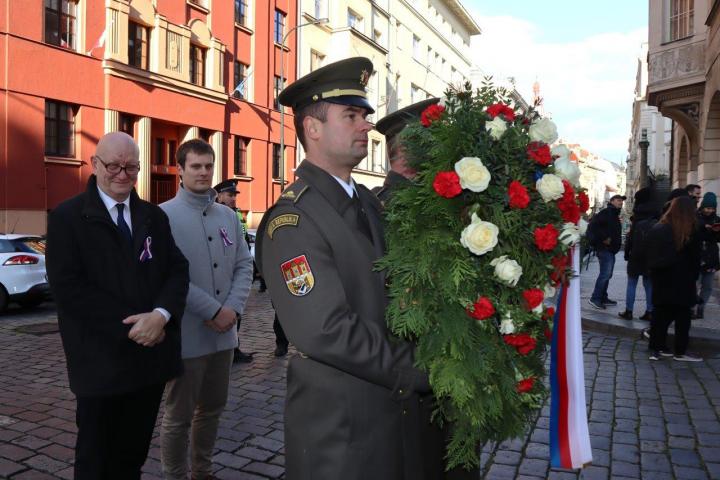
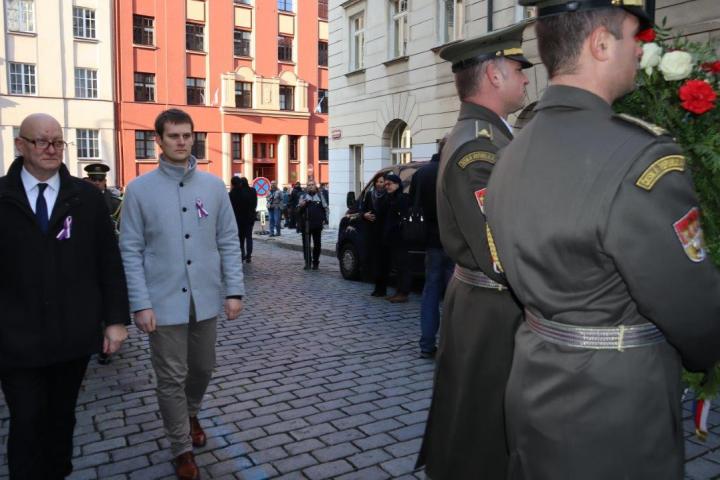
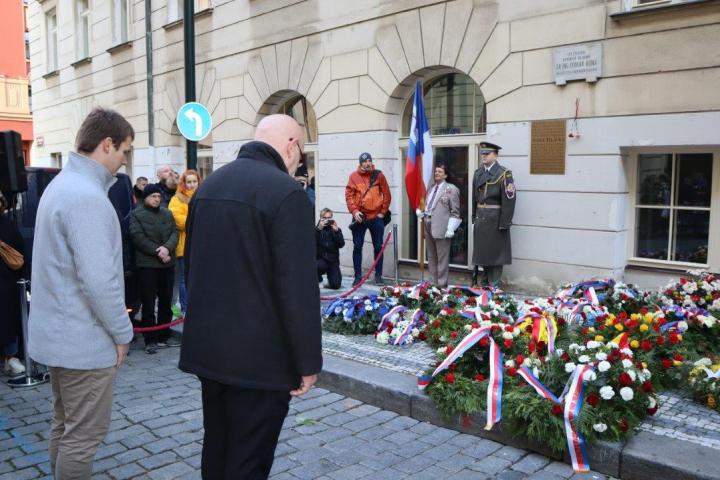
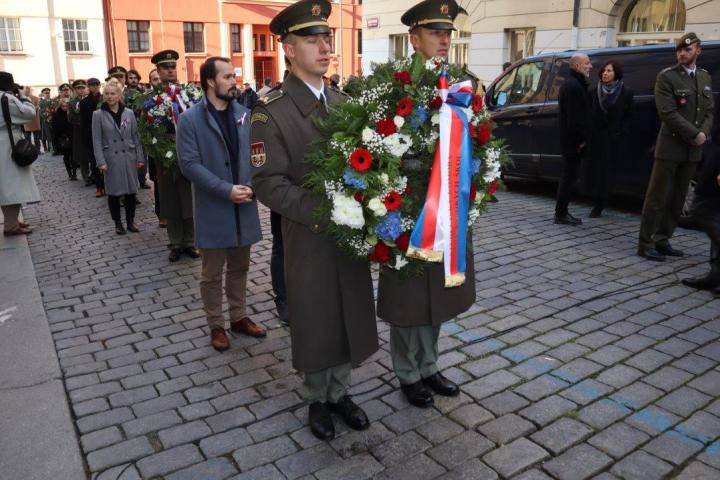
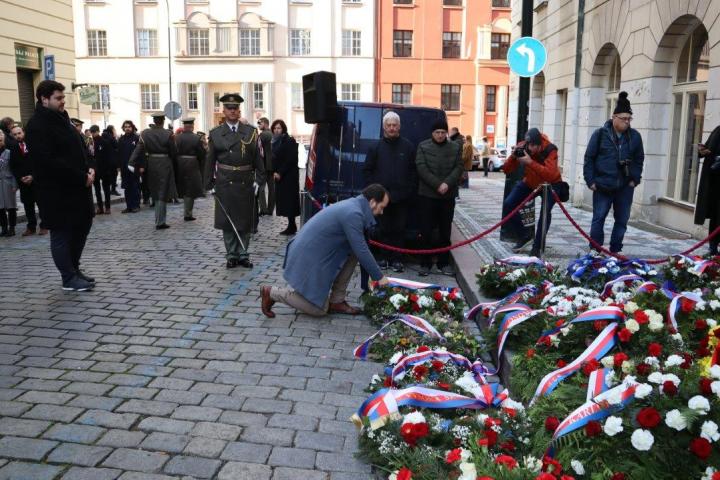
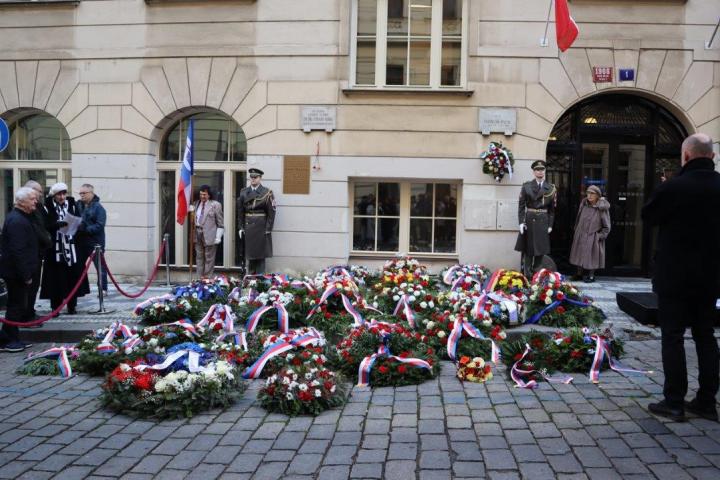
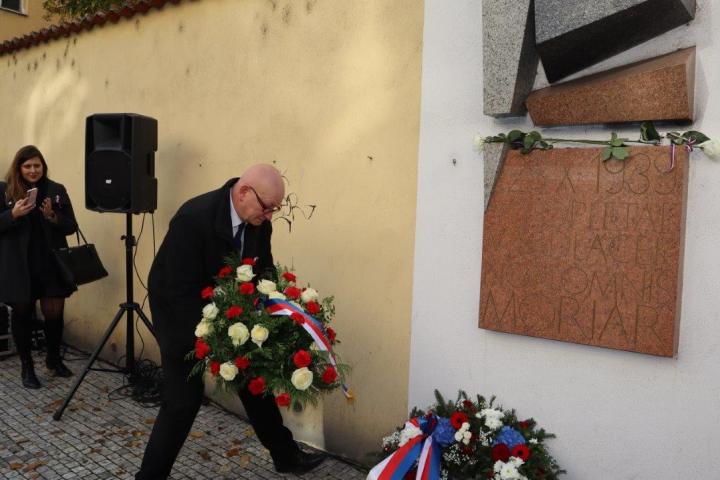
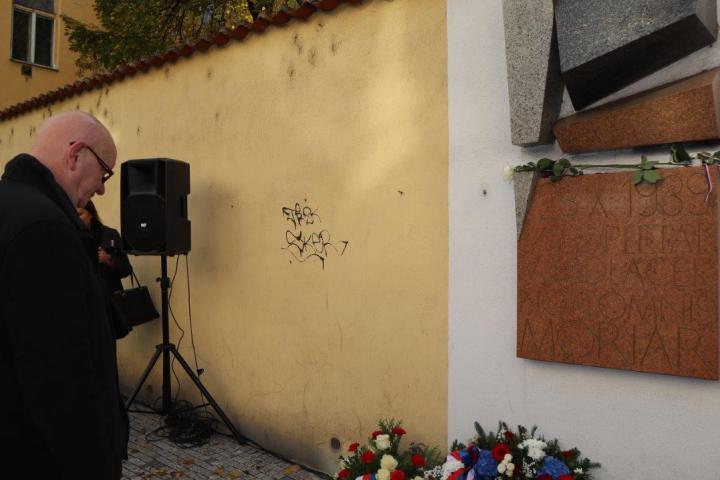
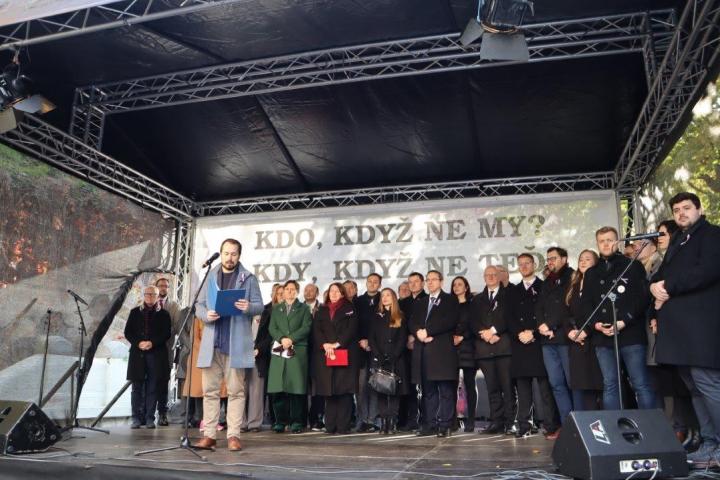
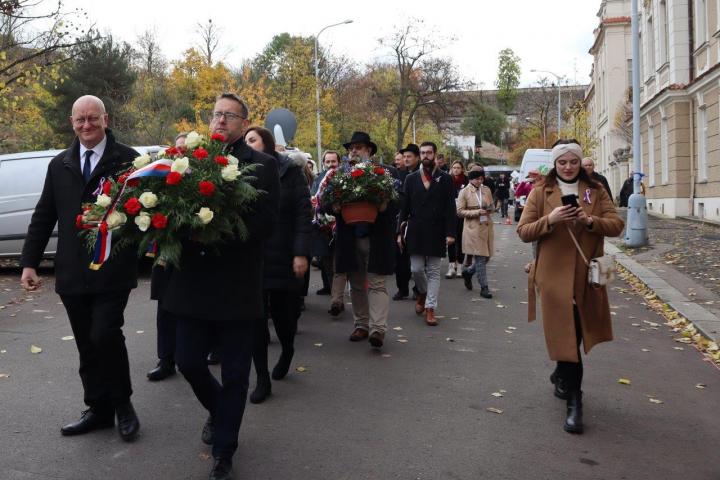
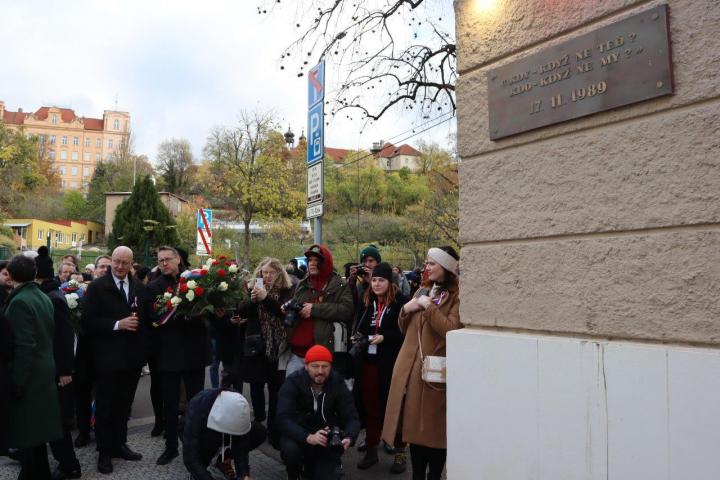
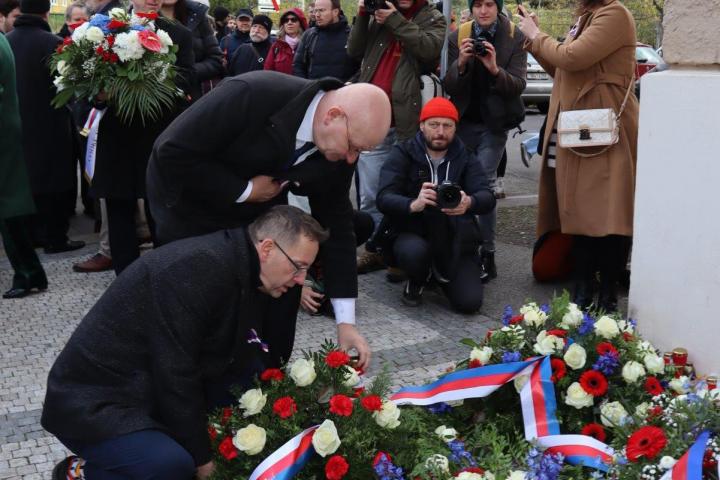
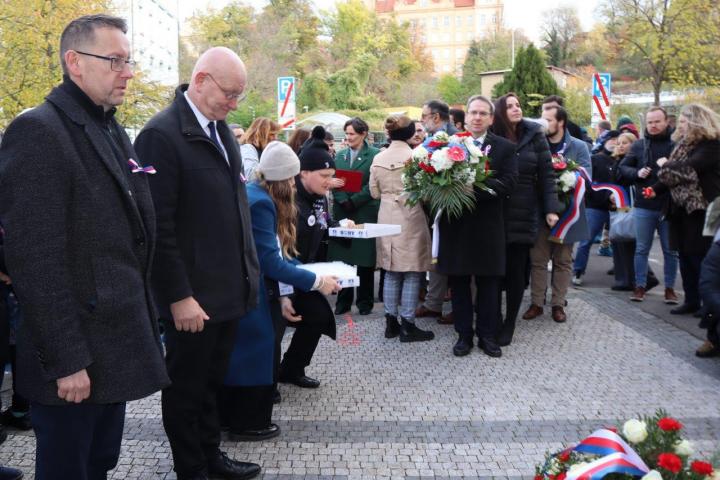
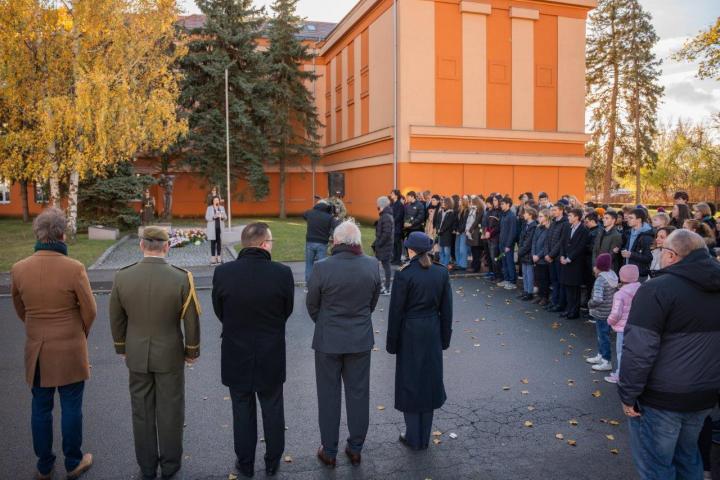
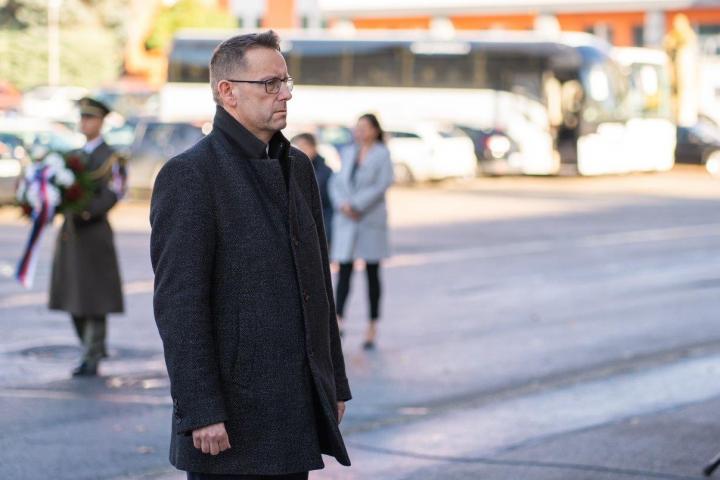
---
Rector Vojtěch Petráček outside Hlávka dormitory on 17. 11. 2023:
The historic events of 1939 and 1989 that we are commemorating today took place in difficult moments for this country. The first, highly tragic event took place at the beginning of our national bondage. The second took place at the end of a period when we were ruled by totalitarian power propped up by Soviet imperial power.
Both in 1939 and in 1989, students were at the centre of the events – young people with a yearning for freedom and with clear views on what is wrong.
Today we commemorate the tragic sacrifice of those who were killed and persecuted by fascist regimes; and we commemorate the pain of the events on Národní Třída Street in 1989, which many of us experienced in person. When we remember 1989, we also remember the wave of positive uprising of the people, which brought us freedom. At the beginning of this process, students marched from Albertov to Národní Třída.
The present-day situation, too, is a difficult moment for this country, Europe and the world. International tensions, the disruption caused by the pandemic, Russia’s aggressive war against Ukraine, and the havoc raised by terrorists in Israel are just some of the problems that are oppressing us. It is up to all of us to find the way back to balance in the world, to peaceful co-existence and cooperation.
I believe in the energy of the young and a healthy view on the world, to which present-day students and young people are contributing.
Courage is needed – and that is what students have!